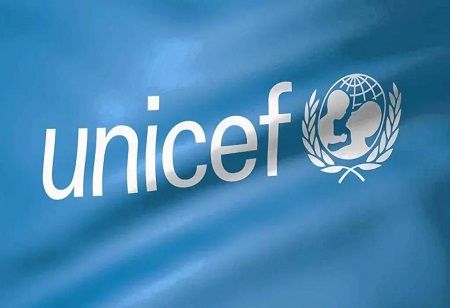-
The Cambodian Ministry of Health in collaboration with UNICEF has published Cambodia's first Children's Environmental Health (CEH) report. This activity brought together over 29 departments at the national and subnational levels, including the Ministries of Health, Environment, Mines and Energy, Agriculture, Forestry and Fisheries, and Industry, Science, Technology, and Innovation.
The CEH report, which was conducted by the Ministry of Health with the support of UNICEF and a contribution from the Clarios Foundation, provides a comprehensive overview of the current state of children's environmental health in Cambodia. It highlights the major environmental health risks that children face, including exposure to air pollution, water and food contamination, heat stress, toxic heavy metals, pesticides, and other hazardous waste, which are exacerbated by climate change.
“Ensuring continued progress in maternal and child health is a top priority for the Royal Government of Cambodia. We recognize that environmental health threats pose significant risks to the gains we have made on improving the health of mothers and children over the past decades”, said Dr. Kol Hero, Director of the Preventive Medicine Department at the Ministry of Health. “We are deeply committed to implementing strong multi-sector policies and programs that safeguard these gains. Today, we are proud to launch the final report of the national Children's Environmental Health Assessment, which will guide our efforts. By addressing environmental hazards, we are building a healthier, safer future for our children and future generations”.
Climate change and environmental degradation are disproportionally threatening children’s survival, health, education, protection, and well-being. The global rise of cancer, diabetes, neurodevelopmental disorders, and asthma has been accompanied by a surge in air pollution, e-waste, and the use of harmful chemicals in everyday products like plastics, food, electronics, toys, and skin creams.
“Children today face unprecedented multiple environmental threats, including air and water pollution, heat stress and exposure to toxic waste and contaminants, which harm their health and cognitive development", said Dr. Will Parks, UNICEF Representative in Cambodia. "These early-life shocks limit children's potential to become future leaders and contributors to their economies. Tackling these complex issues requires multilateral cooperation and strong partnerships. By joining forces, we can create healthier environments so every child can thrive and reach their full potential. The future depends on it”.
UNICEF estimates that 300 million children globally live in areas where the toxicity levels of the air are six times higher than international guidelines. Based on global estimates1, Cambodia is among the countries in Southeast Asia region that ranked the highest on three environmental risk factors–ambient pollution, indoor pollution and lead exposure.
In Cambodia, it is estimated that nearly one in five deaths among children under five is attributable to both indoor and outdoor air pollution and that over 50% of children under the age of 18 have elevated blood lead levels due to lead exposure.
This alarming information was the catalyst for Government action to carry out the Children’s Environmental Health assessment, which launched today. Key recommendations from the CEH report include: strengthening policies, regulations, and their enforcement to prevent and control the exposure of pollutants and contaminants; enhancing the capacity of healthcare professionals to address environmental health issues; promoting public awareness, community engagement, and the engagement of youth on climate change and environmental issues; conducting further research and surveys, as well as improving monitoring and surveillance systems for environmental health.
As a result of this assessment, new activities and partnerships happened this year. One of these partnerships is with UNICEF, USAID, and the Ministry of Health in relation to undertaking nationwide surveys on Children's Environmental Health in 2025. The data gathered from this survey will enable the country to better understand toxic heavy metal contaminations, such as lead, which are affecting children and pregnant women while at the same time establishing the sources of such contaminations. Among its other recent memberships, the Royal Government of Cambodia now also joins the global Children's Environmental Health Collaborative and the Partnership for a Lead-Free Future (PLF), a program led by UNICEF and USAID to mitigate lead poisoning among children, particularly in low- and middle-income nations.
🍪 Do you like Cookies?
We use cookies to ensure you get the best experience on our website. Read more...

